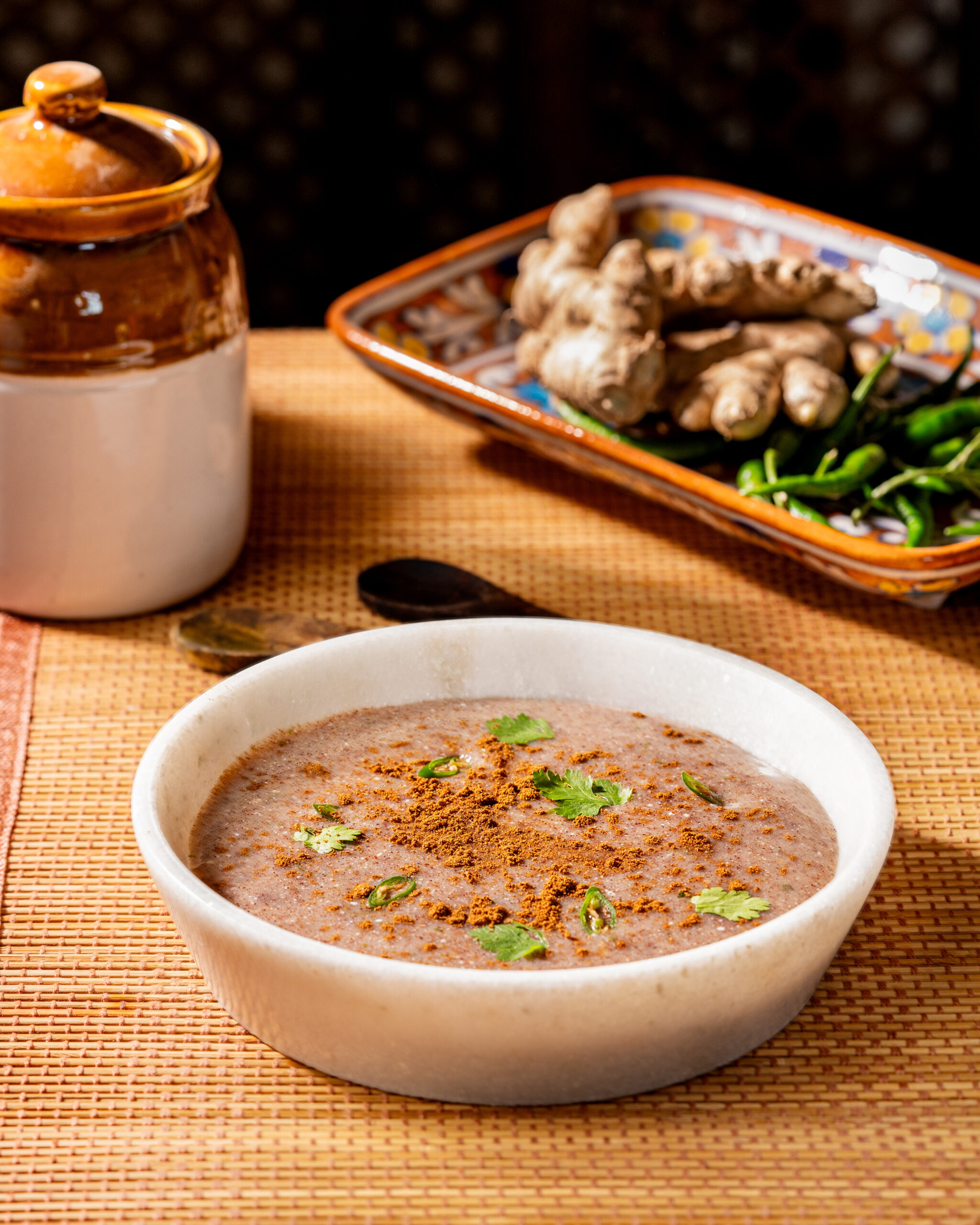
Ingredients
| Roasted cumin powder | 1 tablespoon |
|---|---|
| Mango ginger | 1 teaspoon |
| Chopped coriander leaves | 2-4 tablespoons |
| Green chillies | 2-4 |
| Fermented rice water (pej) | 1 litre |
| Yoghurt | 2 teaspoons |
| Salt | To taste |
| Water | 2½ cups |
| Mandia (finger millet) flour | ½ cup |
What You Will Need
A pressure cooker or rice cooker, mixing bowls, a saucepan, and a mortar and pestle or mixer grinder.
Instructions
To prepare the ragi mixture, start by mixing the ragi flour in a bowl with a little water to make a smooth paste without any lumps.
To prepare the rice water, start by slightly overcooking one cup of rice and do not strain the rice water. Add two cups of water and two teaspoons of yoghurt to the rice, then cover and ferment the mixture for a minimum of six to eight hours.
Drain and save the water from the rice, along with some cooked rice. Your rice water is ready for use.
To cook the ragi porridge, start by bringing half a cup of water to a boil in a saucepan. Gradually add the ragi paste into the boiling liquid, stirring continuously to avoid lumps.
Lower the heat and let the mixture simmer while stirring constantly. This helps to prevent any lumps from forming and ensures a smooth consistency.
Once done, turn off the heat and let it cool slightly. The ragi porridge can be prepared in the evening and allowed to ferment overnight, or had fresh.
To prepare the mandia pej start by crushing green chilli, coriander, mango ginger to a coarse paste in the mortar or mixer grinder.
Add the fermented rice water, the prepared coarse paste, and salt to the porridge. Mix well to achieve a running consistency.
Adjust the seasoning if needed. Sprinkle some roasted cumin powder on top and serve.
Alka Jena is a government official by day and a culinary artist by heart. She is on a delectable journey of unveiling Odisha’s gastronomic treasures, local flavours, and culinary heritage.

This recipe is part of the Millet Revival Project 2023, The Locavore’s modest attempt to demystify cooking with millets, and learn the impact that it has on our ecology. This initiative, in association with Rainmatter Foundation, aims to facilitate the gradual incorporation of millets into our diets, as well as create a space for meaningful conversation and engagement so that we can tap into the resilience of millets while also rediscovering its taste.

Rainmatter Foundation is a non-profit organisation that supports organisations and projects for climate action, a healthier environment, and livelihoods associated with them. The foundation and The Locavore have co-created this Millet Revival Project for a millet-climate outreach campaign for urban consumers. To learn more about the foundation and the other organisations they support, click here.
You must be logged in to rate this recipe.

Sign in with email
